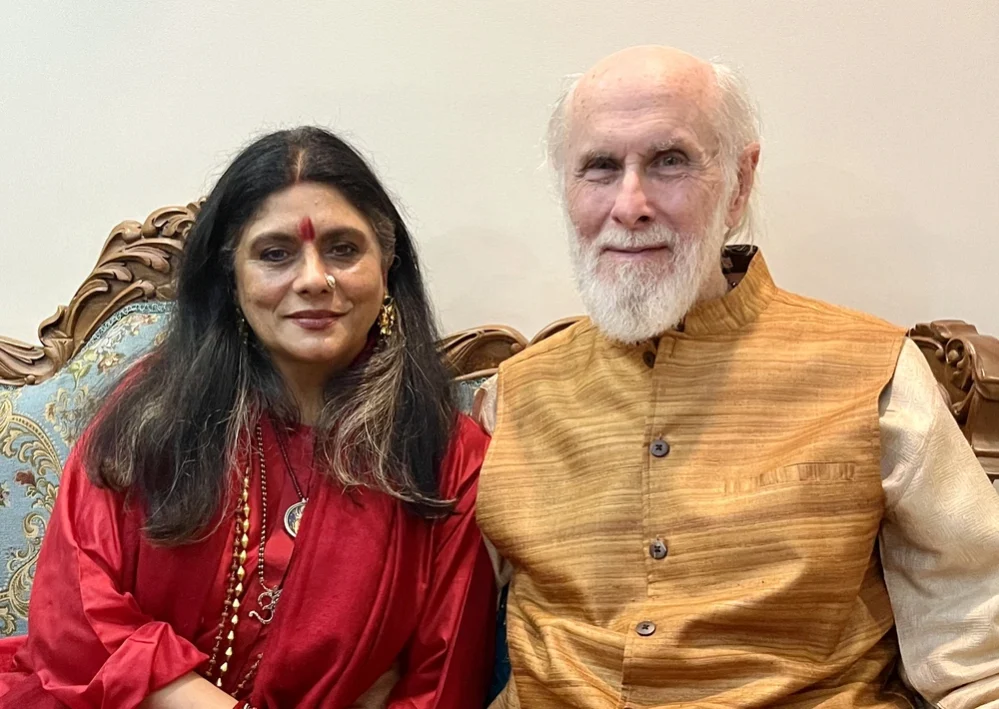Self-remembrance is one of the key practices of meditation in the Vedantic tradition. Self-remembrance grounds us in our eternal reality and in our prime purpose in life, which is to realize who we are in our inmost essence beyond all outer changes of time, place or action.
Self-remembrance is not remembrance of our ordinary self: our personality, mental state or social status. Self-remembrance is not a looking backward in time to what occurred to us in the past from childhood to our present stage of life. Self-remembrance is remembering our true nature and original Self beyond body and mind, thought, emotion and sensation.
Atma-Smarana
This is the Self that we were before birth and will return to after death, and in which we renew our bodies and minds in the state of deep sleep. This is the Self that is ever abiding at the core of our being, the spiritual heart. Such Self-remembrance is called Atma-Smarana in Vedantic texts, remembrance of our true Self or Atman, not ahamkara-smarana, remembrance of our personal self or ego.
We all have a sense of an inner Self and unity Consciousness during the peak experiences of our lives, moments of peace, creativity, love and insight, but do not know how to fully discover it. It is rarely more than an inspiring intimation that we cannot sustain, however much we might wish to make it last.
To remember our true Self, we must let go of our outer self and ego, which is a fabrication of the mind and the influences of the outer world. This is difficult and daunting to do as we have so many needs, demands, and desires that pull us outward and distract us. It requires a strong power of detached attention to abide in the state of Self-awareness. Yet once we have tasted its peace and ananda, we can use that impression as a means to return to it. The calm of Self-awareness will absorb all other mental states.
Self-Remembrance and Pure Consciousness
Self-remembrance has no memory content in the mind, and discards all memories as of superficial value only. It can take us beyond deep-seated traumas and attachments of the mind, clearing away psychological afflictions. Self-remembrance occurs in the negation of thought and the silencing of the mind, not as another activity of the mind. True Self-remembrance requires that we forget everything else but our inmost essence of Consciousness. It means remembering who we are in the state of deep sleep, who we were before birth and what within us will survive death.
We must remember who we are in ourselves, as we are in the presence of Being, not who we were in the past in the realm of becoming. It is not to remember who we are in the eyes of the others, or as represented by a camera or a screen, but who we are as the inner witness and seer of all that we experience, which no one can see as an object.
Self-remembrance is not any form of psychological analysis or examining our past memories. It is discarding the shadows of our psychology from the past for the light of Consciousness in the enduring present. You are free to let go of your outer limited and problematical self-identity at any moment and return to that pure identity beyond name, form and action. But to do that you must steadfastly turn within.
Yoga as per the Yoga Sutras can be defined as Self-remembrance, which is remember the Purusha or Seer within us, which negates all other thoughts. The I thought is the root of all other thoughts, so Self-remembrance is trancing all thoughts back to their origin in the primordial state of I am, the Self-being that is the core of who we are in and beyond all time.
Remember Your True Nature
Self-remembrance is to remember your Self-nature, the I in its essence, not the I am this or this is mine. Whatever we see can be used to promote Self-awareness. We simply remove our attention to the object seen and return to the state of the witnessing Seer within. You are not what you see, even your own body, you are the Seer of all.
Self-remembrance is not a mental exercise, recalling certain memories or events of the past, trying to get rid of bad memories and strengthen those which are good. It is stepping back from the mind, turning inward from the senses and reclaiming our inner Being as independent, free, unconditioned, peaceful and content. It is the ending of all the sorrow and confusion of the mind. We can easily remember our true Self because it provides the light of awareness for the mind and the senses. We only need remember that inner light, not the forms that it illumines.
To remember your true Self is to be willing to forget what is not Self and become the Self of all. Bhagavan Ramana Maharshi gave it great importance to this in his teachings of non-dual awareness. It is a simple practice to restore our inner integrity, authenticity and transcendence. Do not forget your inner Self and you can go beyond all sorrow.
Dr. David Frawley (Vamadeva Shastri)






